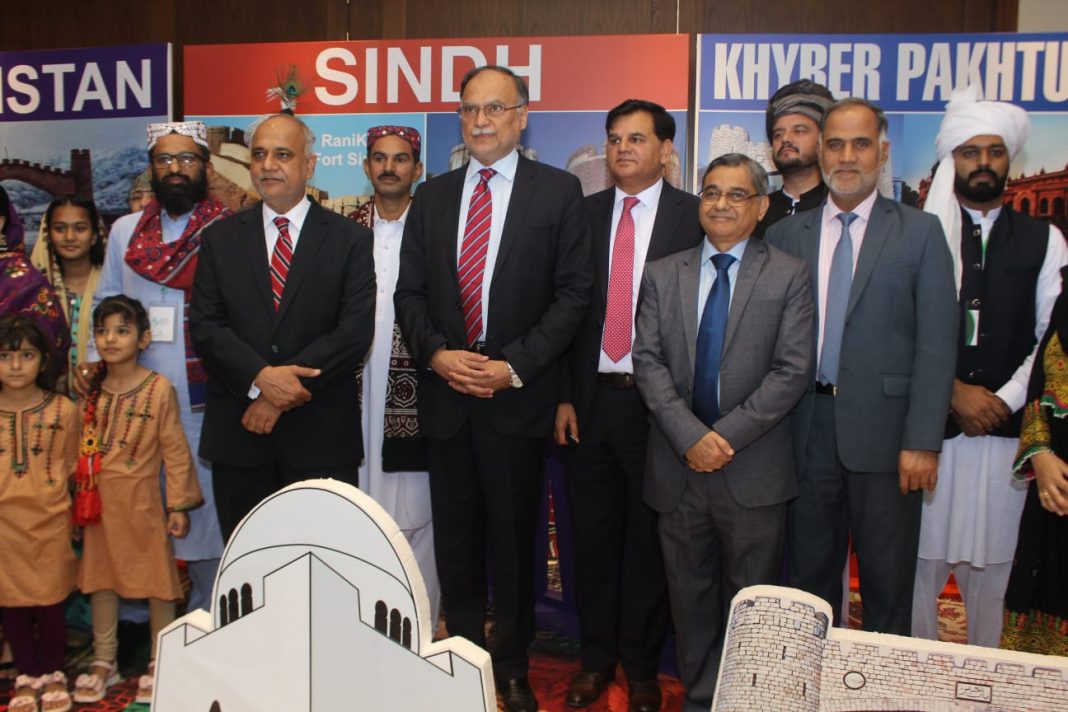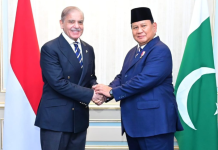Federal Minister for Planning, Development, and Special Initiatives, Ahsan Iqbal, inaugurated the Seventh Agricultural Census 2024 at a ceremony held by the Pakistan Bureau of Statistics (PBS). In his address, he congratulated PBS for significant achievement of conducting a highly transparent 7th Population & Housing Census , the first ever Digital Census with the consensus of all provinces using advanced technology. Now the detailed results and insights on various socio-economic indicators are being disseminated for wider use in research, policy and planning to ensure evidence base decision making and capitalize census data utilization. The data reveals trends and patterns that will provide basis for informed decision-making processes, enabling us to allocate resources more effectively and drive sustainable development. It will help to improve better understanding of demand-supply equilibrium in various sectors to improve service delivery particularly in education, healthcare, infrastructure, and economic opportunities for all citizens.

Federal Minister for Planning, Development, and Special Initiatives, Ahsan Iqbal talk to Media.
Pakistan conducted its 7th Population & Housing Census (first-ever Digital), notable as the region’s largest digitization effort, costing Rs. 34 billion and involving 250,000 personnel. This historic census digitally geo-tagged almost 38 million structures, enumerated 250 million people across 20 demographic variables, and documented 38 million households. Using 126,000 secure tablets and satellite imagery over 915,860 square kilometres, enabled real-time monitoring via GIS. The initiative included an indigenous self-enumeration portal, advanced 495 Census Coordination Centres, and seamless data synchronization, poised to inform policy, economic planning, disaster management, and infrastructure development in Pakistan.
The launch of the results of the 7th Population and Housing Census-2023, held on July 18, 2024, at Islamabad Marriott Hotel, featured Professor Ahsan Iqbal, Minister of Planning, Development, and Special Initiatives, as a Chief Guest. The event also saw the presence of Chief Census Commissioner Dr. Naeem uz Zafar, and other dignitaries including stakeholders, national and international organization representatives, demographers, researchers, and senior officers from the Pakistan Bureau of Statistics.
Chief Census Commissioner Dr. Naeem uz Zafar welcomed attendees and emphasized the significance of Pakistan’s first digital census, highlighting the geotagging of all structures and acquisition of contact details from 30 million households. The census revealed 38,318,107 structures, including 114,159 high-rise buildings, 73,501 residential, and 7,593 economic structures, with 33,065 serving dual purposes, crucial for policy formulation and strategic planning efforts.
• Total Population of Pakistan is 241.49 million with 51.48 % males and 48.51% females with Sex Ratio 106.12, whereas Household Size is 6.30.
• 36.47 million population is under five, 97.53 million population is under 15 years, 62.58 million of population is between 15 to 29 years, 190.27 million population is below 40 years.
• 65.97% of the population in Pakistan is reported as married, while Islam remains the predominant religion, representing 96% of the population.
• 61% of the population aged ten years and older in Pakistan are reported to be literate. Additionally, it has been revealed that approximately 25 million children, which accounts for 36% , i.e. approximately one-third of the children aged between 5 and 16 years, are currently out of school.
• The primary sources of cooking in Pakistan are firewood, accounting for 53% of usage, and Gas/LNG/LPG, making up 42% of usage. Meanwhile, the main sources of lighting in households are electricity, with 84% reliance, followed by solar power, which is utilized by 8% of households.
• As per the Census 2023 results, the reported figure of disability stands at 3.1%, while 9.64% of the population has reported experiencing functional limitations.
Professor Ahsan Iqbal praised the Pakistan Bureau of Statistics (PBS) and stakeholders for completing the national census swiftly. He underscored the census’s importance in guiding policy-making and strategic planning, stressing the value of data-driven decisions for Pakistan’s development. Professor Iqbal highlighted how the census results will aid the Government in allocating resources for development projects and benefit researchers and demographers.
He urges that PBS may develop data portal, dashboards and decision support systems for capitalizing the benefits of the digital census with integration of data available with other federal organizations and relevant provincial stakeholders data for meaningful insights for effective decision making and informed policy-planning. The data, hotspots and insights may be shared with respective stakeholders with using digital platforms like API etc. The efforts may be made to harness the power of technology to drive progress and ensure that our nation remains at the forefront of innovation and development.
He acknowledge the tireless efforts made by Chief Statistician and his team, provincial stakeholders, NADRA, SUPARCO, NTC, Pak Army, Police and the field force including enumerators and supervisors who have worked diligently to collect and analyze this data. The contributions made by all the stakeholders are truly appreciated.
He announced that the results would be accessible on the PBS website, emphasizing its role as a crucial platform for sharing census-related information with the public and policymakers.
PBS officers received shields for their dedication in completing Pakistan’s 7th Population and Housing Census, a major achievement marked by innovations like digital listing tools, real-time monitoring, error detection software, a 24/7 complaint system, and geo-tagging. Stakeholder confidence was a key focus, bolstering transparency, confidentiality, and the acceptance of census outcomes.
BY: Ch Fahad Khan Janda








